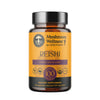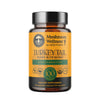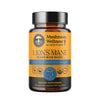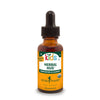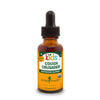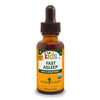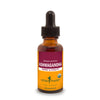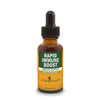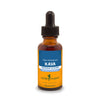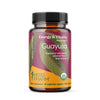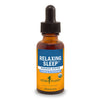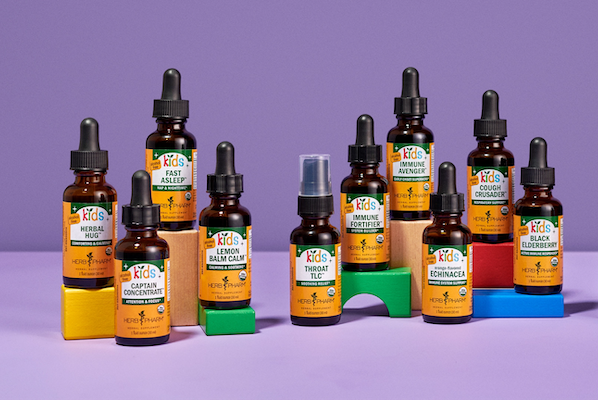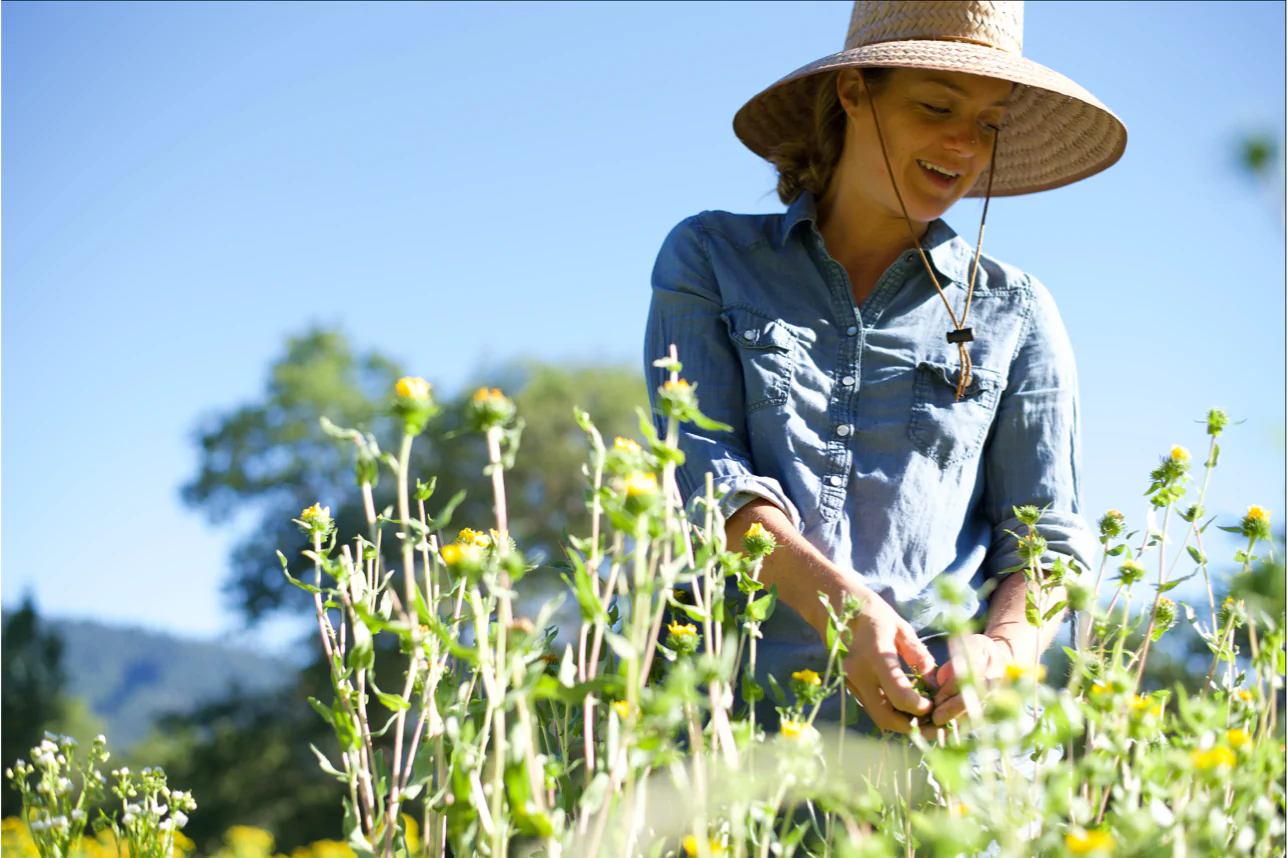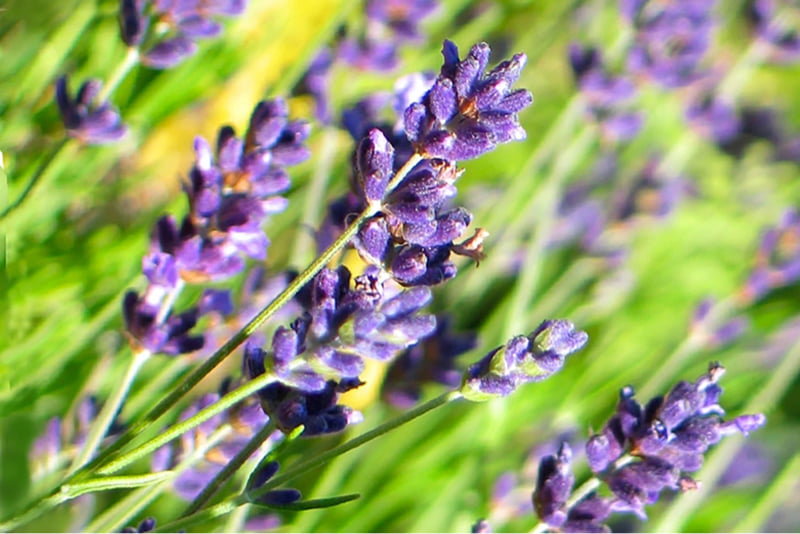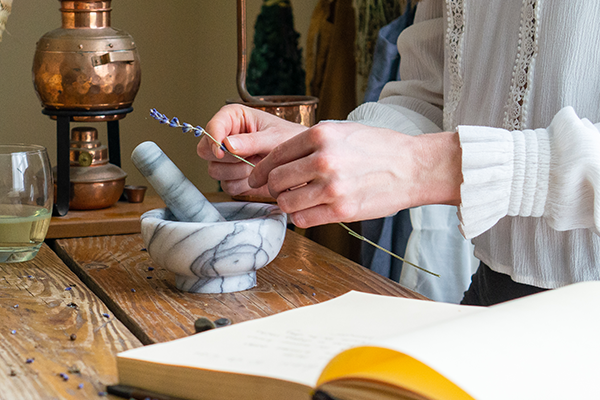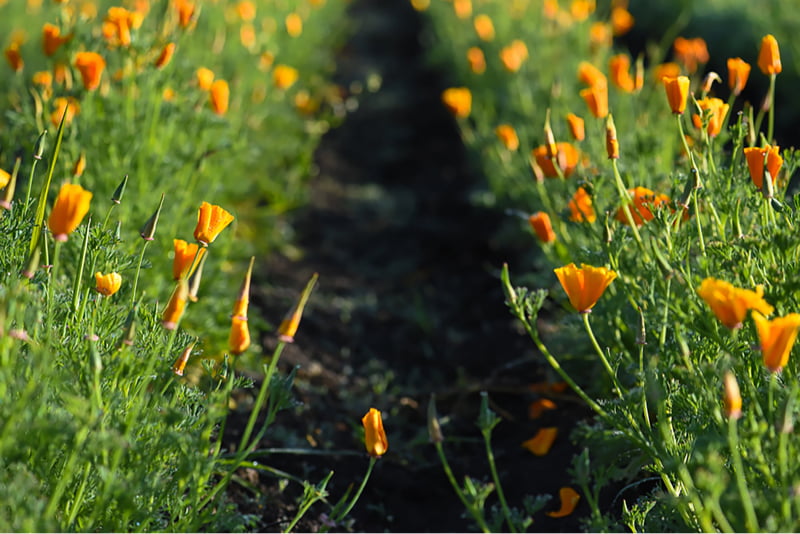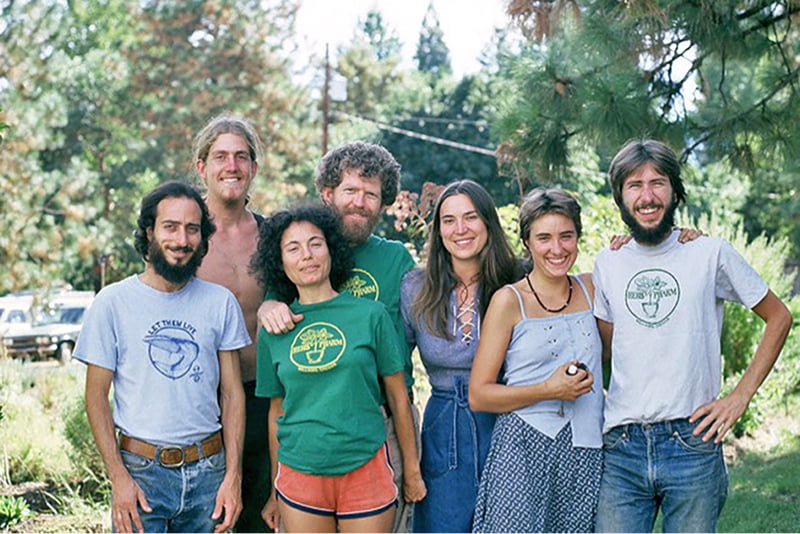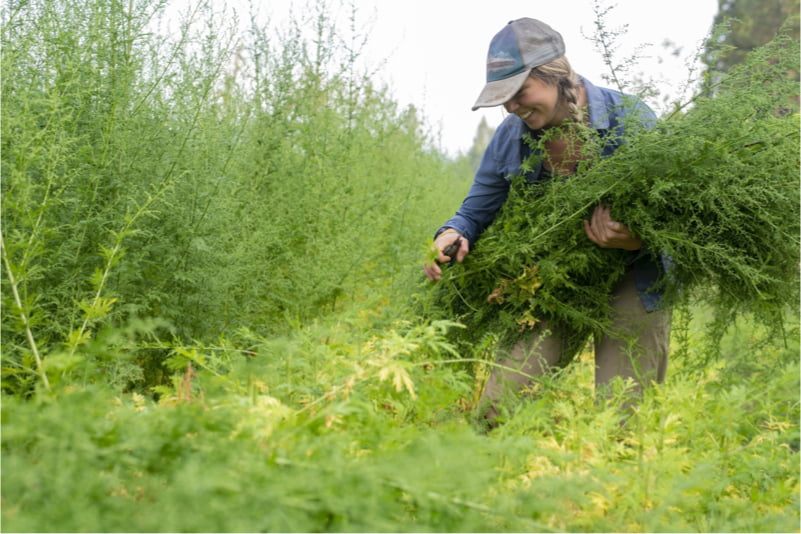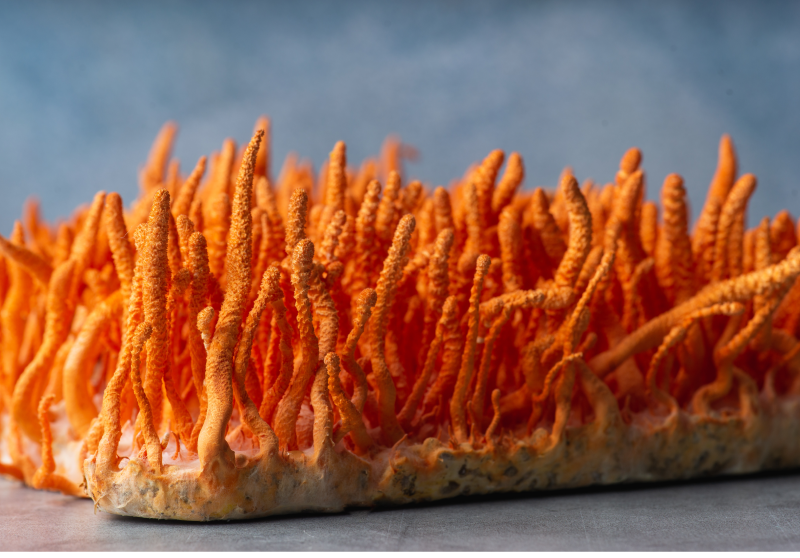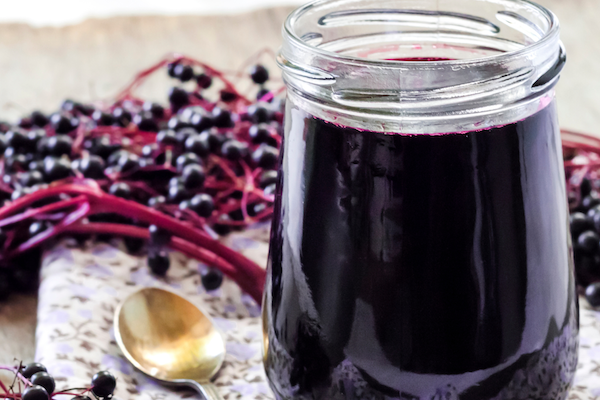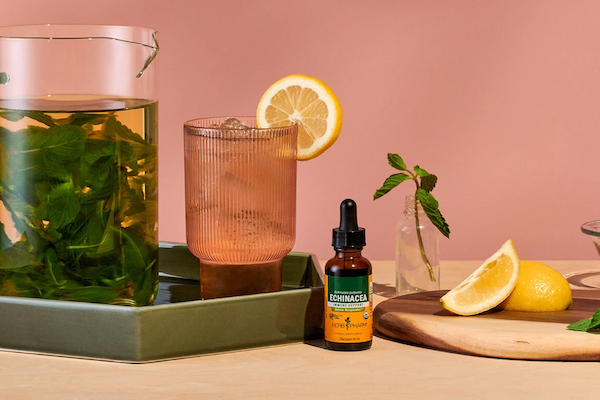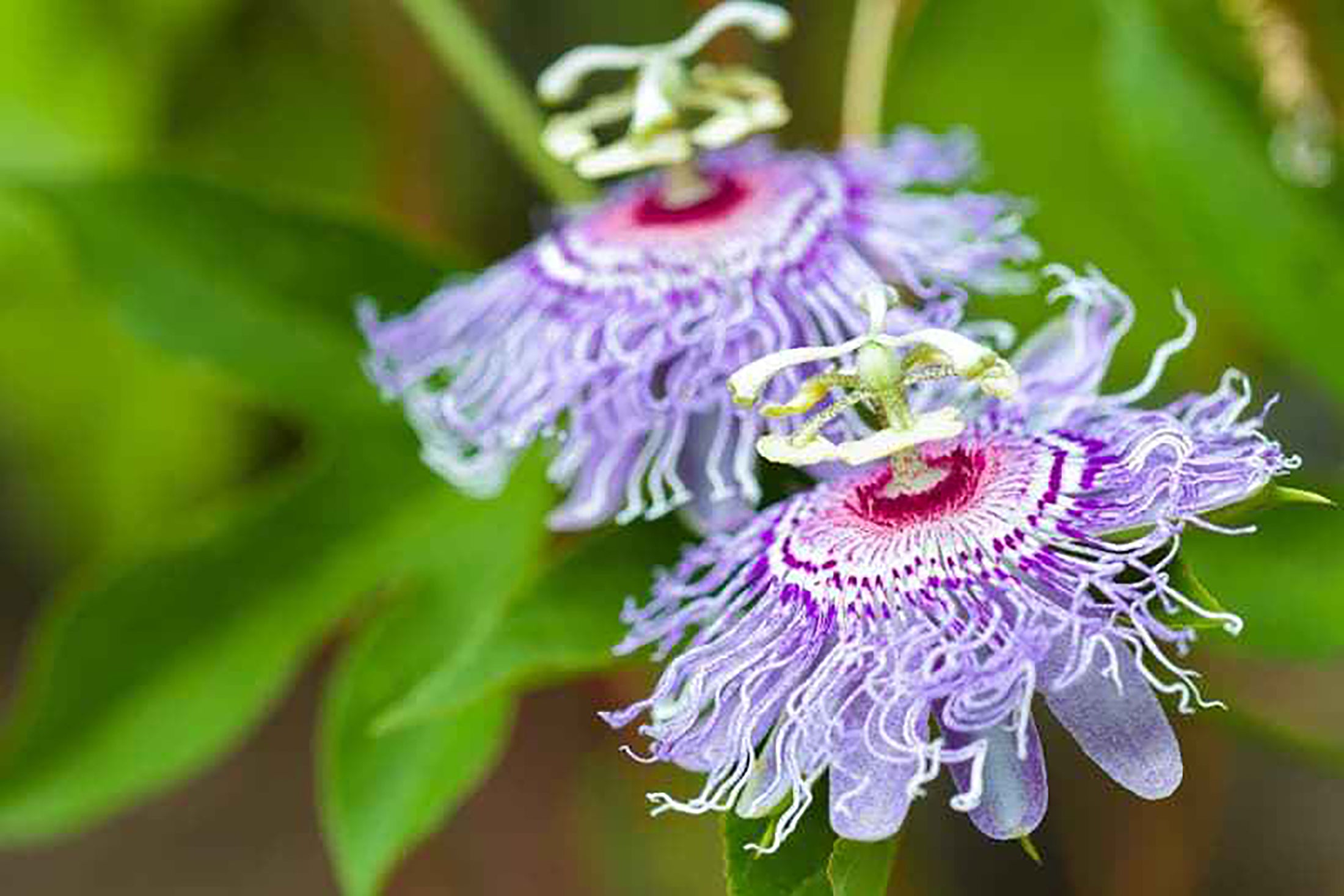Think of a time when you could smell home cooking from another room. The aromas drifting out of the kitchen.
The scent of simmering garlic maybe, or of herbs like Rosemary and Thyme. The promise of a warm, delicious
meal prepared with love. Picture yourself walking into the kitchen, grabbing a wooden spoon and sneaking a
taste. Now imagine a powerful bitter flavor washing over you. A desperate, mouth-puckering,
need-a-glass-of-water bitter.
This is Wormwood. Smells delightful. Tastes bitter. Let’s break it down.
First, some background. Wormwood is bitter and that’s the point. Digestion is triggered when foods and liquids
come in contact with receptors in our taste buds. Wormwood is an ideal herb for this mission. So we use it in
our
Better Bitters Absinthium formula.
What Wormwood looks like
We grow our Wormwood as a perennial on our organic farm in Josephine County, Oregon. Wormwood is a short
plant with silvery gray leaves.
If you look close, you can see it’s not a simple leaf. It branches out a bunch, kind of like parsley but
smaller and even more divided. They’re silky to the touch. In the summer, Wormwood grows tiny yellow
flowers. Under a microscope, it’s striated with a bunch of ridges.
We extract Wormwood fresh. So we pick it in the morning and place it on large sheets, then take it down the
road to our extraction facility.
What Wormwood smells like
You can smell the Wormwood pile before you see it. Rich and aromatic. It’s pleasant, attractive, a bit
familiar. Like Sage. Like Desert Sage. A hint of Mint.
A lot of other bitters don’t have an aromatic element. They barely smell at all, or are boring. Not Wormwood.
Wormwood smells like a savory herb. The sort of herb that you’d smell wafting in from your kitchen. It
smells like something you’d rub on a turkey on Thanksgiving morning.
We should note that would be a mistake.
Top tip: do not rub extremely bitter herbs on your Thanksgiving Day turkey.
What Wormwood tastes like
Wormwood is bitter. When we taste it straight off the farm, we only try a couple centimeters at a time. Even
then, it’s really bitter.
Maybe it’s best to describe Wormwood by describing what it’s not.
Imagine the taste of cocoa nibs without any sugar. Wormwood is much more bitter than that. Think of chewing
raw coffee beans. Wormwood is much more bitter. Black licorice? It has a hint of sweetness. Needless to say,
Wormwood is much more bitter.
Some herbs have bitter components mellowed out by other flavors. Bugleweed is a good example. Or Hops. You
taste the floral aromatics first and then linger with a bitter aftertaste. Not Wormwood though.
It’s true you can actually taste Wormwood’s rich aromatic scent. It’s the first thing you taste. Right there
on the tip of your tongue. It’s light and floral and faint. So hopeful. So brief. So quickly and completely
washed away. Overwhelmed by a bitter flavor that lasts. Raw Wormwood is bitter with a bitter aftertaste. If
you don’t have a drink or eat something, expect the flavor to stay with you for up to 15 minutes.
Of course, this power is why Wormwood works so well in Better Bitters formula.
But if you’re going to try a bunch at home, we recommend you do what we do at the office. Chase it with Peppermint Breath Refreshers. That stuff will get any
flavor out.
